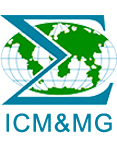Fifth Workshop on Numerical Modeling in MHD and Plasma Physics: Methods, Tools, and Outcomes
Institute of Computational Mathematics and Mathematical Geophysics
of Siberian Branch of Russian Academy of Sciences
holds
Fifth Workshop on Numerical Modeling in MHD and Plasma Physics:
Methods, Tools, and Outcomes
Virtual hosted in Novosibirsk, Russia
October 12-14, 2022
Conference web-site http://conf.nsc.ru/mhd2022/en
E-mail mhd2022@sscc.ru
Topics
- Numerical methods for MHD equations
- Particle-in-cell method
- High performance computing
- Computational Fluid Dynamics
- Computational Physics of Plasma
- Computational Astrophysics
Important dates
Abstracts deadline July 25
Notification of acceptance August 1
Papers deadline September 1
Registration fee deadline October 1
Agenda
Over the years, the work on projects of controlled thermonuclear fusion has been progressing. The ultimate purpose is the implementation of a thermonuclear reactor, which will become an ecologically conscious way of solving the energy problem of mankind. А large number of particle accelerators and colliders have been developed and constructed. The natural processes taking place in supernovae, interstellar medium, and galaxies are the main incentive in thermonuclear fusion. A workshop on numerical modeling in MHD and plasma physics is organized in the era of "big data". Observations with telescopes such as ALMA and results of experiments on colliders such as LHC generate huge sets of data. It is necessary not only to process the data, but also to explain the underlying physical processes with comparable quality. The problem of modeling the plasma in cosmos and laboratory is many-sided. For modeling it is necessary to create computational algorithms based on co-design, simulation study, and assessment of the energy efficiency, which satisfy simultaneously the conditions of high computational accuracy, scalability, and efficiency. The main goal of the workshop is a close and intensive interaction of specialists in the field of numerical methods and parallel computations. The workshop will allow us to formulate current and future requirements for computational models and discuss applications of numerical methods to the problems of plasma physics and astrophysics. The workshop results will be published in the conference proceedings. Conferences and workshops are important life components of the scientific community, therefore, despite all the coronavirus limitations, we hold the traditional workshop on numerical solutions of MHD equations and plasma physics. Considering the current situation, we organize the workshop using virtual conferences. We hope that this format of the conferences will be quite effective and perhaps in the future will provide an opportunity to participate in events, held by scientific centers in the world.
Program committee
Edouard Audit
Atomic Energy and Alternative Energies Commission, Gif-sur-Yvette, France
Dmitry Bisikalo
Institute of Astronomy of RAS, Moscow, Russia
Marina Boronina
Institute of Computational Mathematics and Mathematical Geophysics of SB RAS,
Novosibirsk, Russia
Konstantin Brushlinsky
Keldysh Institute of Applied Mathematics of RAS, Moscow, Russia
Igor Chernykh
Institute of Computational Mathematics and Mathematical Geophysics of SB RAS,
Novosibirsk, Russia
Galina Dudnikova
Institute of Computational Mathematics and Mathematical Geophysics of SB RAS,
Novosibirsk, Russia
Mikhail Fedoruk
Novosibirsk State University, Novosibirsk, Russia
Boris Glinskiy
Institute of Computational Mathematics and Mathematical Geophysics of SB RAS,
Novosibirsk, Russia
Vladislav Izmodenov
Space Research Institute of RAS, Moscow, Russia
Andrey Kozlov
Keldysh Institute of Applied Mathematics of RAS, Moscow, Russia
Igor Kulikov vice-chair
Institute of Computational Mathematics and Mathematical Geophysics of SB RAS,
Novosibirsk, Russia
Galina Lazareva
Peoples' Friendship University of Russia, Moscow, Russia
Vladimir Lukin
Keldysh Institute of Applied Mathematics of RAS, Moscow, Russia
Mikhail Marchenko
Institute of Computational Mathematics and Mathematical Geophysics of SB RAS,
Novosibirsk, Russia
Sergey Moiseenko
Space Research Institute of RAS, Moscow, Russia
Boris Rybakin
Lomonosov Moscow State University, Moscow, Russia
Eugeny Stepin
Keldysh Institute of Applied Mathematics of RAS, Moscow, Russia
Aleksei Taiurskii
Keldysh Institute of Applied Mathematics of RAS, Moscow, Russia
Alexander Tutukov
Institute of Astronomy of RAS, Moscow, Russia
Eduard Vorobyov
University of Vienna, Vienna, Austria
Vitaly Vshivkov chair
Institute of Computational Mathematics and Mathematical Geophysics of SB RAS,
Novosibirsk, Russia
Victor Zhukov
Keldysh Institute of Applied Mathematics of RAS, Moscow, Russia
Abstract submission
The abstract in English (one page) should be mailed to contact e-address
Proceedings
Lobachevskii Journal of Mathematics (Web of Science / Scopus)
Registration fee
5000 Russian rubles
